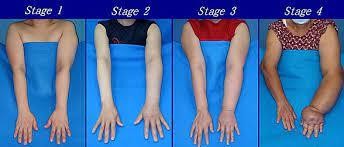A client arrives at the clinic with his daughter, reporting memory impairments:
Which of the following clinical feature are consistent with delirium? Select all that apply?
Altered level of consciousness
The onset of symptoms is months to years
Progressively worsens
May be caused by fluid and electrolyte imbalances or infection
May be caused by uncontrolled hypertension and diabetes
May cause impairments in judgment
Memory impairments
Correct Answer : A,D,F
Choice A rationale: Altered consciousness is a hallmark feature of delirium, where individuals may experience fluctuations in awareness.
Choice B rationale: Delirium typically has an acute onset rather than symptoms developing over months to years.
Choice C rationale: Delirium often has a fluctuating course, rather than a consistent progressive decline.
Choice D rationale: Delirium can result from various factors including fluid/electrolyte imbalances or infections.
Choice E rationale: While these conditions might contribute to cognitive impairments, they are not typically associated with delirium.
Choice F rationale: Delirium can affect judgment, but it's not a defining feature.
Choice G rationale: While memory impairments can be seen in delirium, they're often accompanied by altered consciousness and fluctuations in awareness.
Nursing Test Bank
Naxlex Comprehensive Predictor Exams
Related Questions
Correct Answer is B
Explanation
Choice A rationale: PCOS is not typically associated with genetic cancerous mutations.
Choice B rationale: Insulin resistance and hyperinsulinemia are commonly associated with PCOS, contributing to its pathophysiology.
Choice C rationale: While cortisol abnormalities can cause similar symptoms, it's not a primary finding in PCOS.
Choice D rationale: PCOS often involves hormonal imbalances, but it's not characterized by an estrogen deficit.
Correct Answer is B
Explanation
Choice A rationale: Her healthcare provider prescribing a calcium channel blocker for hypertension is not directly linked to lymphedema.
Choice B rationale: Sustaining an insect bite to her left arm yesterday - Trauma or injury, such as an insect bite, to the affected limb post-mastectomy can increase the risk of
lymphedema.
Choice C rationale: Losing twenty pounds since the surgery might influence overall health but doesn’t specifically relate to lymphedema.
Choice D rationale: Her hobby of playing classical music on the piano is unrelated to the risk of developing lymphedema.

Whether you are a student looking to ace your exams or a practicing nurse seeking to enhance your expertise , our nursing education contents will empower you with the confidence and competence to make a difference in the lives of patients and become a respected leader in the healthcare field.
Visit Naxlex, invest in your future and unlock endless possibilities with our unparalleled nursing education contents today
Report Wrong Answer on the Current Question
Do you disagree with the answer? If yes, what is your expected answer? Explain.
Kindly be descriptive with the issue you are facing.
